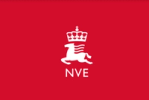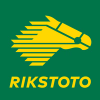It looks like Apple isn't so sure it likes the Mac clones anymore. This is neither surprising nor innocuous. It could end up doing irreparable harm to Apple and to the industry in general. Hopefully, Apple's recent actions have been misunderstood, the concerns of Mac cloners are overstated, and -- to be positive and proactive -- there's a profitable and friendly way out of Apple's dilemma. We've heard about Apple Australia's alleged saber-rattling at Apple dealers who also sell Mac clones. The written document was promptly leaked to the media. We saw the news of a seminar in Oregon touting the advantages of Apple's hardware against the products of Power Computing, Motorola, UMAX, DayStar, and others. The licensees paying money to Apple must find the idea interesting. Perhaps they're planning a seminar across the street where they'll extol their flexibility, price, marketing, or quality. Just kidding, I think. We learned Apple doesn't intend to license PowerBook designs, much to the chagrin of cloners and customers. We heard questions regarding Apple's real commitment to deliver a CHRP version of the MacOS. And there are rumors Apple will demand much higher license fees for the new hardware designs, several hundred dollars we're told by several sources. The alleged reason is the need to recoup hardware engineering costs at Apple. Privately, Apple executives express irritation at the clones' "cherrypicking" and claim Apple's making all the investment in the platform and the cloners reap all the profit. Let's hope these are false rumors or merely reflect a temporary loss of composure.
As for "cherrypicking," the cloners exhibit unpredictable behavior: Looking for the highest profit. As for making all the effort and the cloners making money out of Apple's investment, one thought that's what licensing the platform was about. We sell you a license. We both expect to make more money out of the deal than we put in. The cloner's margins are supposed to more than pay for the fee. And Apple is supposed to make real money out of the licensing business. Well, it seems that's where the stated assumptions, or the implementation, went wrong.
Regarding the stated assumptions, Apple went into the licensing business for reasons others than directly making money from it. At the time, a little more than two years ago, Apple's management felt the Macintosh platform needed more credibility. The Mac was labeled as proprietary, no alternative source of supply, no competition. With Mac clones, the reasoning went, software developers would invest more because the cloning would grow the Mac ecological niche, and corporate purchasers would feel better, safer, about Apple and the Macintosh. Then, as the cloners came on line, Apple's business and credibility started suffering for reasons unrelated to the presence of alternative sources of Power Mac hardware. As a result, these successful players in the Mac niche only exacerbated Apple's financial problems. Instead of a positive-sum game where everyone benefited from a growing PowerPC industry segment, the sum of the game now appears to be zero and the cloners' profits seem to be sucked from Apple's income statement. "Seem" is the verb I just used because we don't know. Where would the Power Mac segment be without the pioneering, audacious marketing of Power Computing, without players like UMAX, MP systems from DayStar, or the credibility of Motorola targeting business users?
The temptation might be to return to the old days where Apple ruled alone, or to increase licensing fees "as needed." The first would durably damage Apple's credibility at a critical time. So would the latter, by discouraging cloners.
Yet there's a way out of this situation, a way that would maintain a healthy growing Mac-compatible segment and preserve Apple's freedom to make both hardware and software for as long as their shareholders want them to. Right now, a cloner must license both hardware and software. That's the rub. Apple needs to let go of the hardware licensing business, establish a basic hardware design, the equivalent of the PC/AT at the core of all PC clones -- let's call it the PPC/AT -- and supply software that runs on that platform -- no ifs, no buts. I wrote supply, not give. OEM licenses or shrink-wrap licenses are available at competitive rates. Everyone's free to improve on that core. The cloners can add hardware features and supply drivers. So can the mother ship. But each basic release of the OS works on the standard PPC/AT implementation. No more cherrypicking, no more trying to pass on the cost of hardware designs, just software licensing fees and market forces.
Unfortunately, there are several holes in this scenario. One is that Apple could fear its inability to provide competitive designs, picturing itself as overwhelmed by the cumulated energy and creativity of many third-party designers extending the platform. The corollary hole is that Apple could be tempted to design "private" features into the system software only accessible by its own hardware design, thus protecting a competitive advantage. From time to time, Microsoft is accused of doing this in Windows for its applications. In any event, Apple's current licensing program suffers from several genetic or structural defects. Apple licensing was not born out of the desire to make money in and of itself, and structural problems arise from the entanglement of hardware and software in licensing discussions.
Appointing CHRP (or any other design) as the PPC/AT, letting everyone build around it, and delivering, at last, a Mac OS version for CHRP, is Apple's way to free its software licensing from hardware complications. It will rekindle confidence and stimulate growth in the PowerPC industry. This might even free Apple, in turn, to copy the Microsoft model and build an immensely profitable application business on a thriving PPC niche and a NeXT-based Mac OS. Apple shareholders might like that kind of Microsoft cloning.





